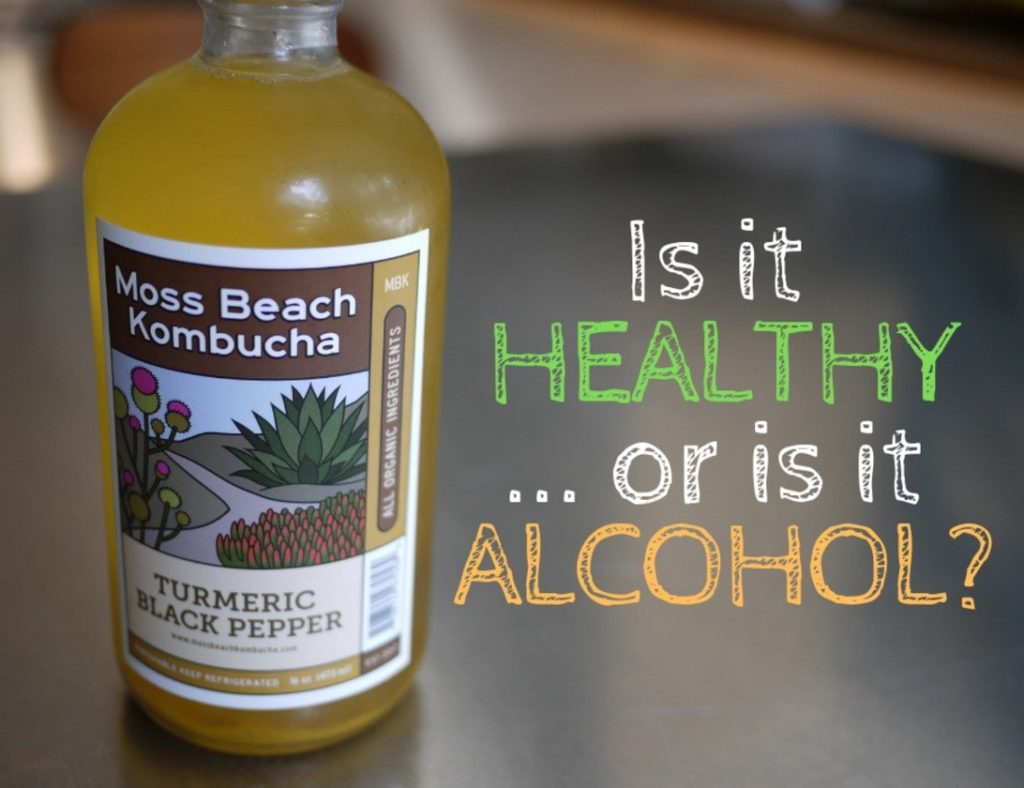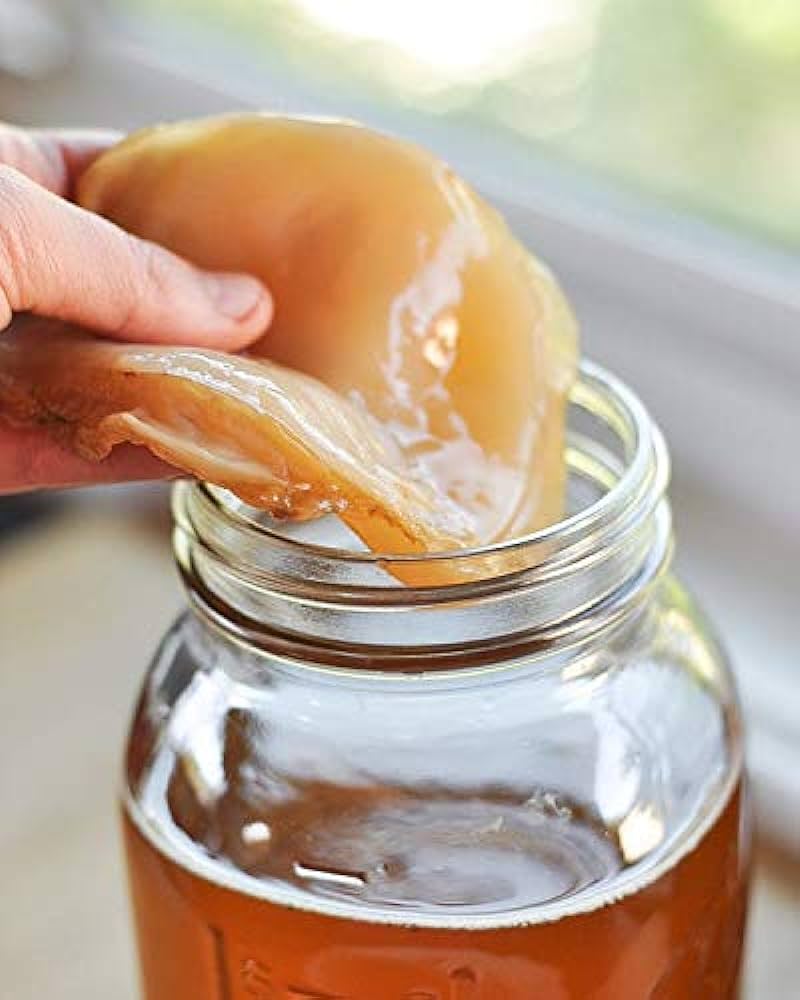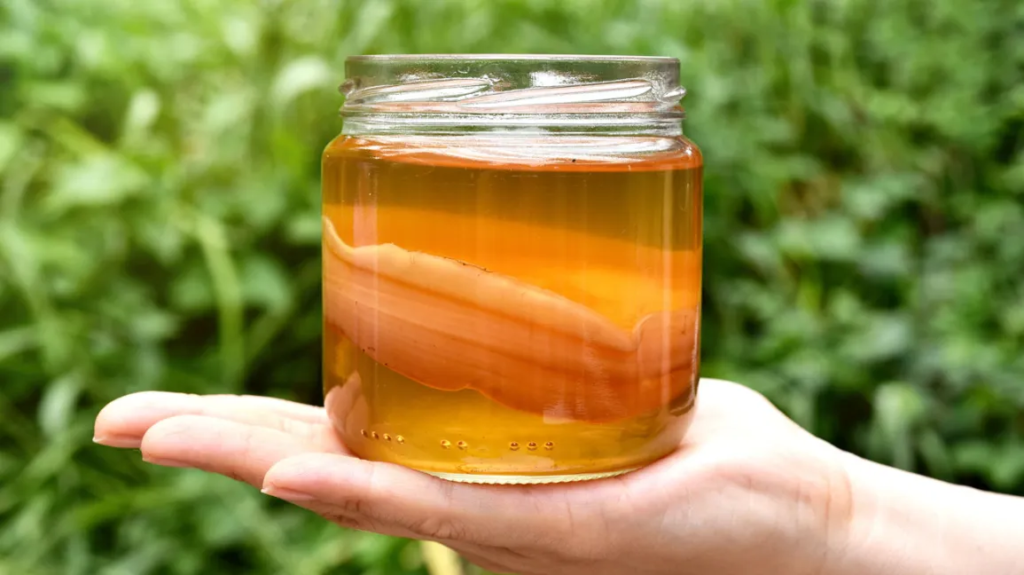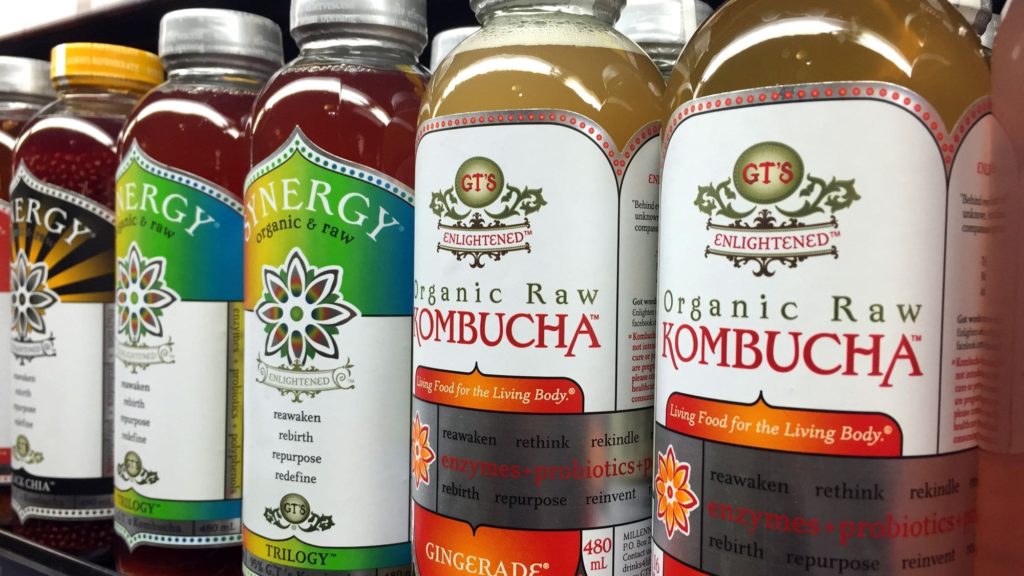Kombucha Alcohol, a state-of-the-art fermented beverage, has been making waves within the fitness and well-being world. Known for its probiotic advantages and refreshing taste, it has ended up a pass-to option for those searching for a more fit alternative to sugary sodas or alcoholic beverages. But could that kombucha alcohol incorporate alcohol? In this blog, we will explore the exciting relationship between Kombucha and Alcohol, losing light on what you want to recognize about this fizzy drink.
I. Brief Overview of Kombucha Alcohol


Kombucha, often referred to as the ‘elixir of life,’ is a fermented tea beverage with a recorded relationship returned over 2,000 years. It originated in China and steadily spread to other elements of the world. This fizzy, tangy drink is created by infusing black or green tea with a symbiotic colony of microorganisms and yeast (SCOBY), and a piece of sugar. The aggregate undergoes fermentation for numerous weeks at room temperature.
II. Historical Roots of Kombucha
Kombucha’s adventure via history is a captivating one. From historical China, it located its manner to Russia, Europe, and finally, the United States. This journey is marked by testimonies of fitness benefits, mystique, and even myths surrounding the dazzling homes of kombucha.
III. What is Kombucha Alcohol?
Defining Kombucha
Kombucha is a fermented beverage that is made by adding a tradition of microorganisms and yeast to sweetened tea. This combination undergoes a method of fermentation that transforms the initial ingredients into a unique, bubbling drink.
Ingredients and Brewing Process
The primary substances of kombucha alcohol include tea leaves (generally black or green tea), sugar, water, and the all-vital SCOBY. The SCOBY is a living symbiotic colony of microorganisms and yeast, that’s responsible for the fermentation manner.
Formation of SCOBY
During the fermentation method, the floor of the tea turns into a mushroom-like film formed via bacteria and yeast. This movie is called SCOBY, which is short for ‘symbiotic colony of bacteria and yeast.’ The SCOBY plays a vital position in changing the tea and sugar into kombucha.
IV. Alcohol in Kombucha
Understanding the Alcohol Content
Kombucha is a dynamic beverage, and its alcohol content can vary substantially. While it is commonly taken into consideration as a non-alcoholic drink, it does comprise a small amount of alcohol because of the fermentation procedure. This alcohol content typically falls below zero.5% alcohol by volume (ABV), which is the felony threshold for labeling a beverage as non-alcoholic.
Factors Influencing Alcohol Levels
Several factors have an impact on the alcohol content material in kombucha, which includes the fermentation time, temperature, and the kind of yeast lines present in the SCOBY. Longer fermentation durations and higher fermentation temperatures can cause barely higher alcohol ranges.
Legal Regulations
Kombucha producers want to conform to legal rules concerning alcohol content. In the US, for instance, any beverage with an ABV exceeding 0.5% should be classified as alcoholic and subject to alcohol-related regulations. This approach allows industrial kombucha manufacturers to cautiously reveal and manipulate their alcohol ranges to conform to these guidelines.
V. Is Kombucha Alcohol Safe to Drink?
Health Benefits of Kombucha
Kombucha has won recognition not only for its specific taste but also for its potential fitness blessings. It’s frequently praised for its probiotic houses, which could help digestive health and increase the immune gadget. Additionally, kombucha consists of antioxidants and beneficial natural acids.
Risks Associated with Alcohol
The alcohol content in Kombucha is usually minimal, but precautions should be taken into account when targeting specific groups. Higher alcohol level kombucha may not be safe for pregnant women, those who are sensitive to alcohol, or people recovering from alcohol addiction.
Safety Considerations
Consumers who drink kombucha need to be aware of any sensitivities and the alcohol content of a particular brand so as not to harm themselves with it. Below, let’s take a look at some ways of monitoring and keeping an eye on your Kombucha’s alcohol content.
VI. Monitoring Alcohol in Kombucha.
Home Testing Methods


Worried about the alcohol content in your homebrew kombucha? You can easily test it at home with one of many available home-testing kits. With these kits, you can effectively gauge your brew’s ABV and keep it within desired levels.
Commercial Kombucha Alcohol Labels
This means that any commercial kombucha must list its alcoholic content on its labeling for legal consumption. Such information could guide a consumer towards purchasing a kombucha of preference.
VII. Reducing Alcohol in Kombucha
Control During Fermentation
The alcohol level can be controlled by the brewer of Kombucha during fermentation. Minimizing alcohol production requires shortening fermentation periods and lowering fermentation temperatures.
Post-Fermentation Methods
Kombucha following fermentation may then be placed in a refrigerator since cold temperatures inhibit fermentative yeast activity leading to little or no alcohol formation. As well, some brands utilize unique techniques and filters to reduce over-alcoholization.
VIII. Enjoying Kombucha Alcohol Responsibly
Alcohol Consumption Guidelines
It’s important to know your tolerance and any potential health problems before you can enjoy kombucha responsibly. Worrying about alcohol intake? Go for low-alcohol Kombucha and non-alcoholic options.
Alternatives for Non-Alcoholic Kombucha
For those who want to avoid alcohol altogether, there are non-alcoholic kombucha options to be had in the marketplace. These provide equal probiotic advantages and clean flavor without the alcohol content material.
Additional Tips:
- Experiment with Flavors: Kombucha is particularly versatile on the subject of flavoring. You can upload culmination, herbs, spices, or even ginger at some stage in the second fermentation to create specific and scrumptious flavor profiles.
- Store Kombucha Properly: To maintain the preferred flavor and reduce alcohol manufacturing, store your kombucha inside the fridge. This slows down fermentation and continues the alcohol content decrease.
- Know Your Tolerance: If you’ve got a low tolerance for alcohol or are keeping off it for fitness reasons, be cautious and privy to the alcohol content material within the kombucha you consume.
- Explore Home Brewing: If you are a kombucha enthusiast, remember to attempt your hand at home brewing. This allows you to have full control over the components and fermentation manner, inclusive of alcohol degrees.
- Share with Friends: Kombucha Alcohol can be a social drink. Sharing a bottle with buddies and their own family may be an amusing manner to introduce others to its precise taste and capacity for health blessings.
Resources:
- Kombucha Brewers International: An organization committed to promoting and defending the kombucha industry. They offer sources, news, and facts about kombucha.
- The Big Book of Kombucha: A comprehensive guide to Kombucha brewing, consisting of recipes and pointers for creating numerous flavors.
- Kombucha Kamp: An internet site and online shop with a wealth of facts about kombucha, which includes brewing courses, troubleshooting tips, and a forum for kombucha enthusiasts.


- Alcohol and Tobacco Tax and Trade Bureau (TTB) – Kombucha Regulation: The TTB presents information on federal guidelines concerning alcohol in kombucha inside the United States.
- National Center for Home Food Preservation – Making Fermented Pickles and Sauerkraut: While not particular to kombucha, this aid gives steerage on fermentation ideas, which can be useful for homebrewers.
Conclusion:
In the end, Kombucha Alcohol is a charming and wholesome beverage that offers lots of blessings. While it includes a small quantity of alcohol because of the fermentation technique, it’s commonly taken into consideration for the maximum wide variety of people to consume. By informing the elements influencing alcohol degrees and taking appropriate precautions, you can enjoy Kombucha Alcohol responsibly and pleasure in its precise flavor and capacity for fitness blessings.
In this complete guide, we have covered the necessities of Kombucha Alcohol, from its historical origins to its fermentation machine, alcohol content, and safety considerations. Armed with this know-how, you could with a bit of luck explore the area of kombucha and make knowledgeable choices that are healthful for your alternatives and health needs. Cheers for your kombucha adventure!
FAQs:
Q1: Does all kombucha include alcohol?
A1: Yes, all Kombucha Alcohol consists of some ranges of alcohol due to the natural fermentation process. However, most commercial to-be-had kombucha is classified as non-alcoholic because the alcohol content material is generally below 0.5% ABV.
Q2: Is kombucha steady enough to drink sooner or later of being pregnant?
A2: While kombucha is typically secure for people, pregnant girls are encouraged to be cautious due to the alcohol content fabric and the presence of stray microorganisms and yeast. It’s nice to talk with a healthcare expert before consuming kombucha at some point in pregnancy.
Q3: Can I force after drinking Kombucha Alcohol?
A3: In most instances, the alcohol content material in kombucha is very low, similar to the alcohol content in non-alcoholic beer. It is not going to impair your ability to force. However, when you have issues or are sensitive to alcohol, it is recommended to wait earlier than using.
Q4: How can I reduce the alcohol content in homemade kombucha?
A4: To lessen alcohol content, you may manage fermentation time and temperature. Shorter fermentation durations and cooler temperatures can help limit alcohol production. You also can refrigerate kombucha after fermentation to sluggish down yeast activity.
Q5: Are there any health advantages to drinking Kombucha Alcohol?
A5: Kombucha is regularly touted for its potential health advantages, consisting of stepped-forward digestion, immune device help, and the presence of antioxidants and organic acids. However, man or woman responses to kombucha can also vary.
Q6: How can I check the alcohol content in my self-made kombucha?
A6: You can use domestic trying-out kits in particular designed to measure alcohol by volume (ABV) in kombucha. These kits are available online and in some specialty stores.
Q7: Are there non-alcoholic variations of kombucha to be had?
A7: Yes, there are non-alcoholic kombucha options available available on the market. These are typically categorized as ‘non-alcoholic’ or ‘alcohol-free’ and comprise very low alcohol degrees, properly beneath the 0.5% ABV threshold.
Q8: Can kombucha be eaten as an alternative to alcoholic drinks?


A8: While kombucha is an alcohol-free or low-alcohol opportunity, it can not offer equal outcomes or revel in alcoholic beverages. It may be a satisfying alternative for the ones trying to lessen their alcohol consumption, but it is essential to experience it responsibly.
Q9: What should I do if my self-made kombucha has an excessive alcohol content material?
A9: If your self-made kombucha has a better alcohol content than desired, you can dilute it with water or fruit juice to reduce the alcohol concentration. Be sure to display destiny batches more closely to manipulate alcohol tiers.
Q10: Are there any legal policies for promoting kombucha with alcohol?
A10: Yes, there are prison policies in the area for selling kombucha with alcohol content material. In many nations, together with the United States, kombucha with an ABV exceeding 0.5% has to be labeled as alcoholic and can be a problem to specific alcohol-associated regulations.
Read More: When Does Beer Expire? A Comprehensive Guide to Expired Beer
